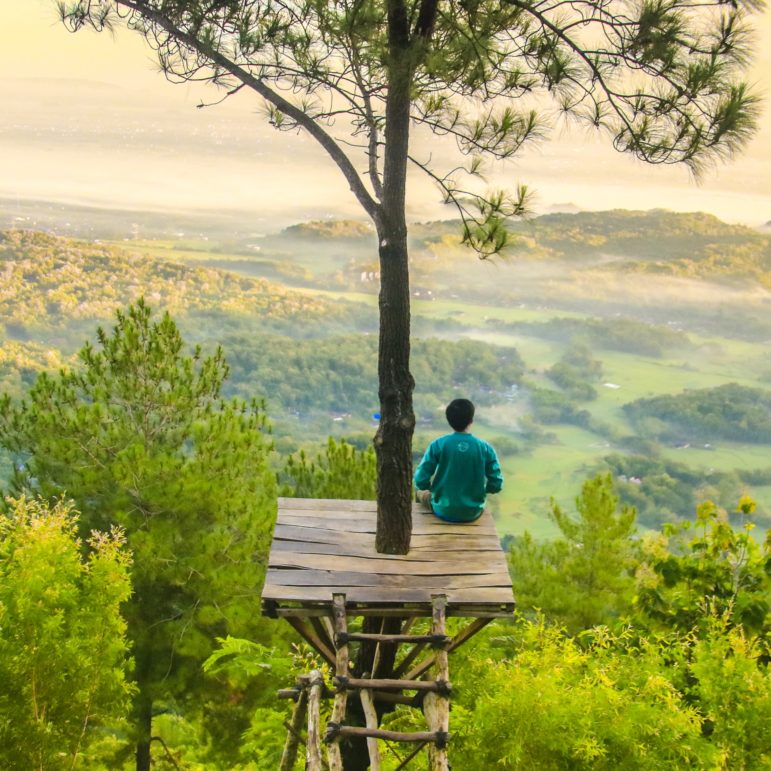
Esta columna está disponible en español.
I consider myself a fairly methodical, structured and orderly person. Everything I do must have an order shaped by specific steps, particularly when it comes to my spirituality, which is when I decide to be more organized. Part of this is because of Asperger’s Syndrome. However, there is a time when you have to forget the structure and simply follow what the intuition dictates.
With the passage of time, I have been forming my own spiritual practices, learning as much as I can from different cultures, trying to keep myself both correct and true to their origins and to myself. I usually say that I’m an eclectic witch, and by that I mean that I take a little of everything, what I consider correct and necessary, always maintaining respect for the source, and creating a personal practice.
Some practices remain static, such as my way of reading the cards, checking the chakras, spiritual cleansing methods, but others have changed over time, I have been adding, modifying and eliminating steps from them, such as meditations, my way of connecting with the divine energy and understand it, especially the prayers and incantations I use.
To wait or to act?

(Samuel Silitonga, Pexels.)
There are times when I don’t have my notes, my ideas or anything at hand, there is no way to review what I have done before, as when, on a typical day, I’m on public transport and feel something isn’t right. What to do? To wait or to act? Obviously the second option is the correct one.
I believe that all living beings have energy, including inanimate ones, and that it is possible to give it form and purpose to manifest changes. Humans are not the exception to this, so if the need appears, it doesn’t seem right or ethical to do nothing, except on very rare occasions.
Considering that first example, I simply identify what bothers or worries me, and I verbalize it in my mind, followed by my desire and its possible solution. Simple, direct, and (until now) effective. It is a “method” that has always worked for me, one that I use whenever it is necessary.
You don’t have to say everything out loud, or say it in words. I close my eyes, I take a breath, forget my surroundings and, suddenly, it’s just me and my thoughts, directed like an arrow straight to my desire, my goal, that prayer or that incantation.
The difference between prayers and incantations

(Myriams-Photos, Pixabay.)
For me, a prayer is a request to the divine energy, or, as I say, “the people from above.” God, Buddha, Odin, the virgins, angels, guardians, ancestors, the universe… names abound, but the essence is the same in general terms. No matter how we call this divine energy, what face or characteristics we give it, it remains the same, viewed from a different cultural lens. A prayer is asking for help, asking for assistance and intervention when the situation warrants it.
An incantation, on the contrary, is the manifestation of our will, our personal energy, formed and directed towards a specific objective using the verbal or mental word, optionally with the help of other materials or energies. Being children of the divine energy, we humans have our own, which we can manifest and use at will. You could say that this is the most basic form of magic.
Many cultures have used both, and each technique carries a power with it. The power of tradition, repetition and antiquity, is undeniable. They are proven formulas and methods that have been passed down from generation to generation, and not because they wanted to, but because they are useful. However, traditions began as innovations long ago.
The importance of innovating
Sometimes, situations force us to think outside the comfort zone, and this applies to any aspect of life. It’s not about forgetting our customs and traditions, but about creating a new one and propitiate that those that exist, those in which we trust, evolve over time.
A static spiritual practice is depressing, boring, and leads to failure, to disconnect from the current or tradition or belief that we are following. To evolve and innovate, to explore unknown areas, other methods, to apply new ideas, just to name a few, not only relive the faith we may have, but also offer a new perspective.
Innovate in our practice, whatever it is, vivifies it, keeps it new, full of mysteries, expectations, promises. The day our faith stagnates, it will have failed.
Although I’m still learning to trust my intuition, learning to identify when it is my faith that speaks (and when it is my head overthinking), it is becoming easier for me to let everything flow and nothing to influence. Sometimes faith must be like a river, and the believer a swimmer. Sometimes we have to trust the current will take us to a good port, and modify the way we swim. So far, it has not failed me.
The Wild Hunt always welcomes submissions for our weekend section. Please send queries or completed pieces to eric@wildhunt.org.
The views and opinions expressed by our diverse panel of columnists and guest writers represent the many diverging perspectives held within the global Pagan, Heathen and polytheist communities, but do not necessarily reflect the views of The Wild Hunt Inc. or its management.
The Wild Hunt is not responsible for links to external content.
To join a conversation on this post:
Visit our The Wild Hunt subreddit! Point your favorite browser to https://www.reddit.com/r/The_Wild_Hunt_News/, then click “JOIN”. Make sure to click the bell, too, to be notified of new articles posted to our subreddit.